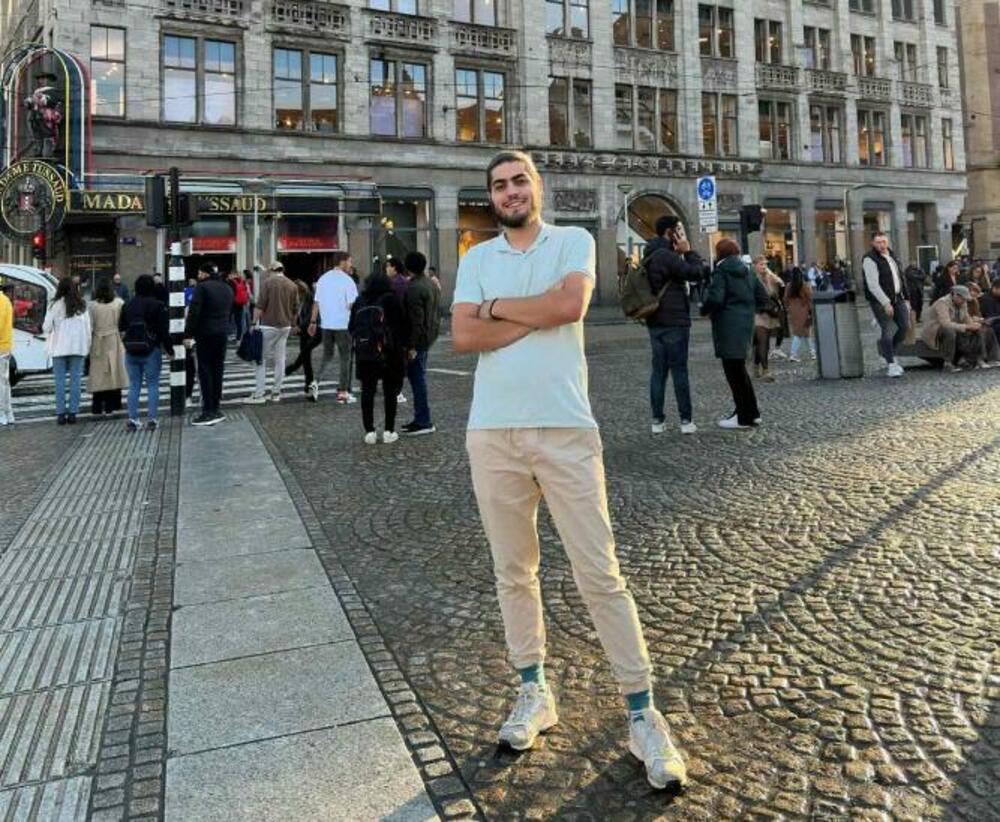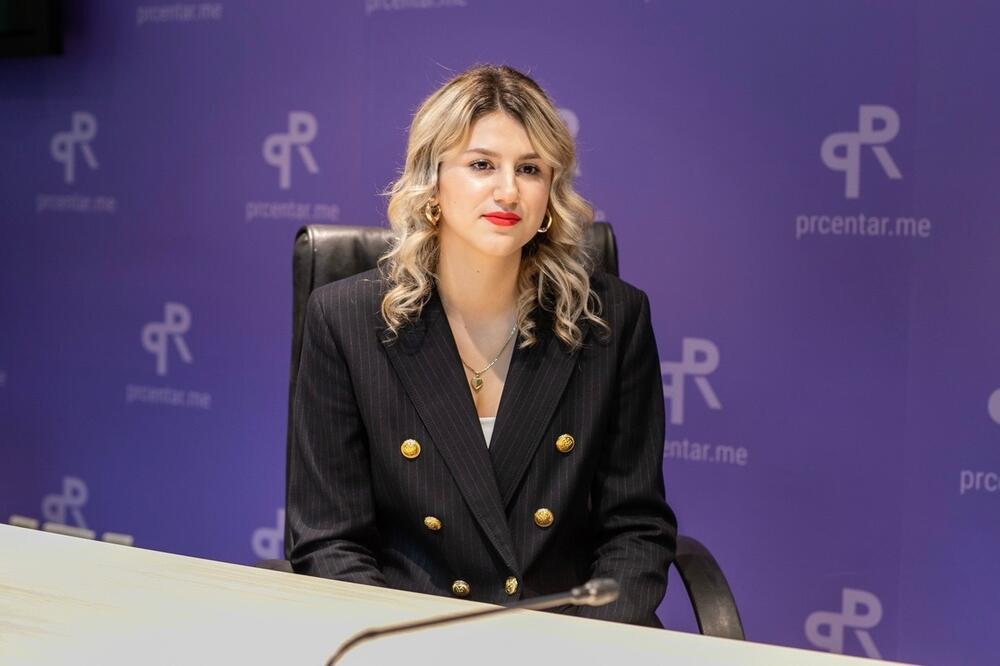Dissatisfaction with the existing political options, the lack of motives for "replacing the DPS", insufficient care of the parties for young people, the feeling that they cannot change much, are the main reasons why young people in Montenegro turn out for elections less than other age groups, according to "Vijesti" interlocutors.
The recent results of research carried out as part of the Montenegrin election study showed that voters aged 18 to 34 voted in the first round of presidential elections in a percentage almost twice as low as the national average, while they turned out in a higher percentage, which is still lower than the average, in parliamentary elections. .
Twenty-four-year-old Miloš Manojlović from Nikšić decided not to exercise his right to vote in the parliamentary elections. This graduate archeologist says that he decided not to do it because he was not satisfied with the political offer, even though he follows political events, and adds that he "no longer had the motive to vote for the dismissal of the Democratic Party of Socialists."

The young interlocutor of "Vijesti", who wished to remain anonymous, points out that he voted earlier, because "the situation demanded the most urgent and necessary change at any cost".
"From the very beginning, it was clear to me that the political elites look down on the voters, even their own, trying to drag them into some stories for small children that they themselves are not ready to believe, but their bare interests push them forward. And when you know what kind of privileges are in circulation, then it is not difficult to believe in the impossible," he states.
As he adds, the fact that he is "absolutely independent in the existential sense and in freedom of thought" contributes to this.
The president of the Governing Board of the Union of High School Students Lana Lješković and political scientist Lazar Vulević do not agree with them, although they have different views on this topic.
Lješković points out that she exercised her right, because she believes that her vote is important and that every young person should go to the polls.
"The main motivation is to have my voice heard, as well as to show that there are people who have such an opinion."
Although he votes, Vulevic does not like the options he has, but he wants to contribute to changes in the country. He adds that he voted differently in all elections - depending on the program or "who disappointed him the least in the period from election to election".

As the main cause of the lower than average turnout of young people, Manojlović cites the lack of concern for the problems that young people have. Vulević agrees with him, but adds that the rhetoric of Montenegrin politicians is focused on national and religious issues.
"I think the main reason is... that the insufficiently convincing and time-established programs of political parties and the politics they represent do not motivate young people to become more interested...", believes the interlocutor, who wished to remain anonymous, adding that young people would included if "some new and refreshing force with a complete and decisive turn in politics and, most importantly, with new, charismatic and original leaders" would emerge.
Lješković explains this phenomenon by distrust in the political system, but also by "teaching that politics is a topic for adults that young people should not deal with" as a result of which, in her opinion, "young people feel that their vote is not valid".
She and Vulević think that parties usually deal with young people under pressure from non-governmental organizations, that is, the public, and Manojlović points out the small number of young people in positions within parties as proof of this state of affairs.
"With the arrival of newer generations, the turnout will be less and less. It certainly came from the experiences of previous generations, which could not change anything in the elections," Vulević assesses.
According to him, these data should alarm the decision-makers, but he believes that nothing will be done about it because "young people are only taken care of when they are employed on the condition that they take membership cards and provide an additional vote".
"It is fundamental for the continued functioning of any state that they have the voice of young people and their turnout in elections. If this does not happen, over time there will be growing dissatisfaction among young people, and then the whole nation," states Lješković.
Boško Milović, one of the initiators of the Omladina.me portal, notes that this is a global phenomenon that he blames on "global populism".
"We have seen in our country in the last few elections, first optimism rises and the turnout is high, only for the next elections everyone realizes that nothing will change, and then the turnout starts to fall. The reason for the low turnout among the majority of young people is that they think that their vote does not change anything, they are not attracted by messages and visuals, and some of them who read the program or the promises of the parties that are running for election. Therefore, they have nothing to offer them, first of all visually, and then also qualitatively", he states.
The president of the Network for Youth Activism (MOACG), David Vukićević, believes that young people do not see political parties as their representatives who will represent their rights and interests.
"A significant part of the population hardly sees the perspective for life in Montenegro. Young people cannot find an adequate job for which they have chosen professionally, they do not earn the earnings they believe they should be following, it is extremely difficult, practically impossible to solve the housing issue, they do not trust the institutional system, they believe that they do not live in the system of the rule of law. Such a system is created precisely by the actors of the political scene, so that explains the above data", explains Vukićević.
Milović reminds of the phenomena of party employment and nepotism in the spirit of which young people grow up, but adds that "capable and educated young people are mostly abstainers".
"They cannot connect elections and democracy with something that can change their current situation for the better, without involving corruption, nepotism, etc. Political parties with their partitocratic approach and 'clientelistic philosophy, me for you, you for me', are to blame for the nonsense," he believes.
"Young people quickly realize that everything is a farce"
The founder of the portal Omladina.me, Boško Milović, recalls that twenty years ago he watched the elections at the Faculty of Law in Podgorica and adds that "there is no big difference between student and state elections", but also that some actors of those elections are in power today.
"All the negative elements are present, only the stakes are higher and therefore the game is dirtier. "Imagine a young man who meets democracy for the first time and immediately realizes at university that everything is a farce, that someone he chose to represent him is actually going to make money off of him," says Milović.
According to him, the political parties in Montenegro "with their internal organization do not allow young people to have their voice heard, nor to ask questions in their organizations, nor in society".
"Young people serve political parties as decoration - to look prettier in promotional videos. They are used to distribute flyers on the streets and to fill election commissions. "The problems of the youth are important to the parties only if they can score some points for themselves, and along the way also solve something for the youth," he says.
Milović believes that "young people have realized that the game is fixed and that they cannot influence the decisions, so they indulge in lethargy and worry about some things that concern them much less than who is in power in our country".
"In order to change that, the electoral system must be reformed, and direct democracy must be introduced to some extent, first in the parties themselves and then among them. It is necessary to reduce funding to political parties, and give greater power to local communities," he points out.
"It is important for the parties that those they have hired or hope to vote"
Vukićević says that "this attitude of young people towards electoral processes means that young people perceive that their participation in democratic processes will not particularly affect the quality of life and the overall social environment".
"Such an attitude can stem either from distrust in the entire electoral system or... from the realization that the actors on the political scene do not represent the interests of young people, and that supporting some of the electoral lists would represent the legitimization of such a process", states the president of MOACG.
When asked whether the parties should react to the results of this research, Milović replied that they are not interested in this problem because "it is important for them that those they brought to work and those who hope to get a job through them vote for them".
"Pensioners will definitely show up that day at the polling stations, and they just need an increase in pensions so they can take out loans and continue to finance their children and grandchildren who are unemployed or don't have enough to make ends meet," he adds.
Nevertheless, Milović believes that the parties will be worried "when they see that citizens unite", above all in local communities, through referendums and elections, making the simplest decisions related to their immediate environment.
"It will be alarming for the parties when people realize how much power they have when they are together and when all the orchestrated divisions and fantasies that someone else will honestly decide our fates, and that we only need to go to the elections every 4 years, fall into the water. The reaction of the parties to that will be desperate, but they should not be underestimated, because they are the ones who have everything to lose and the ones who don't know what else to do," concludes Milović.
Bonus video:




